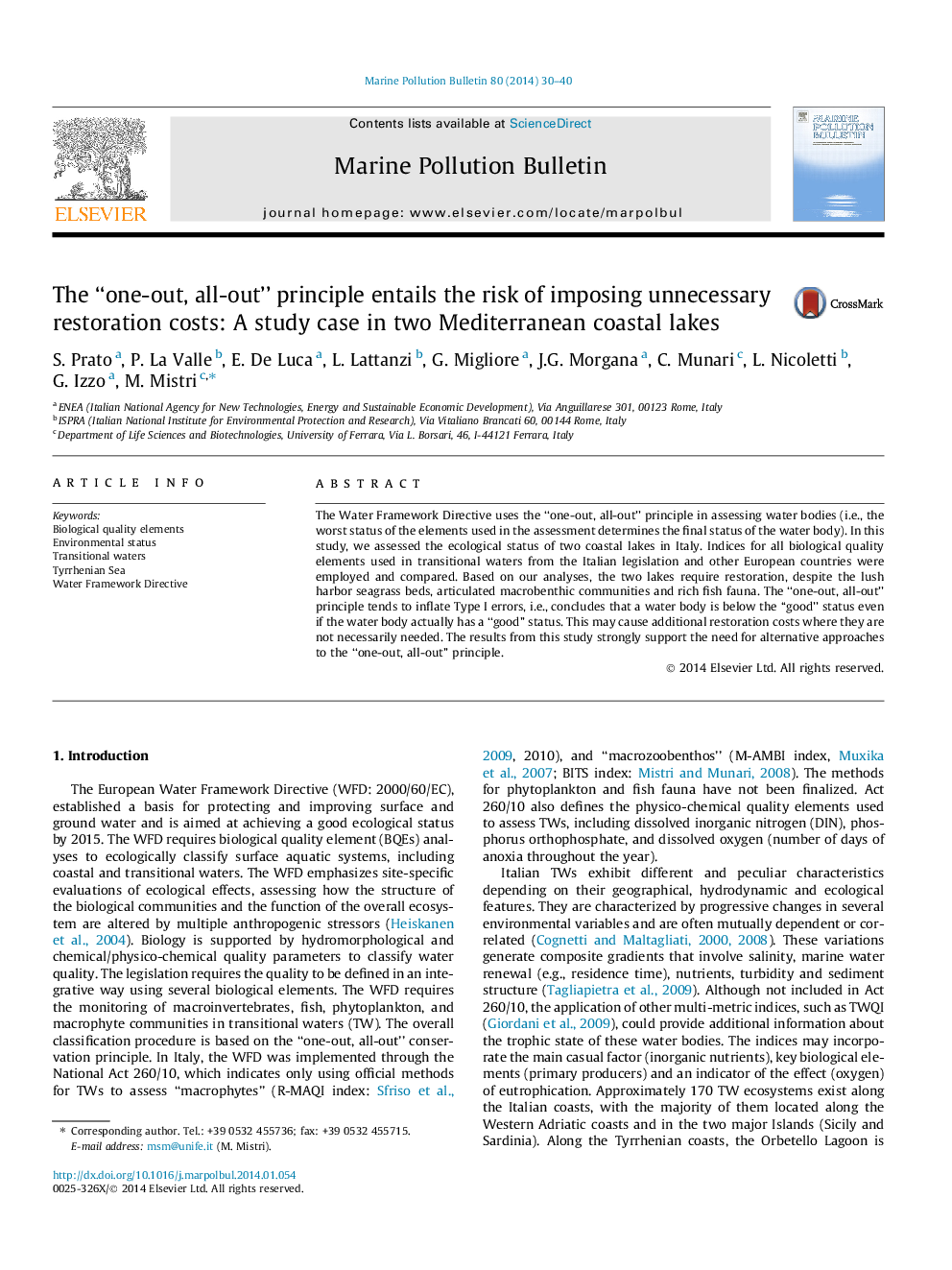| Article ID | Journal | Published Year | Pages | File Type |
|---|---|---|---|---|
| 6358006 | Marine Pollution Bulletin | 2014 | 11 Pages |
Abstract
The Water Framework Directive uses the “one-out, all-out” principle in assessing water bodies (i.e., the worst status of the elements used in the assessment determines the final status of the water body). In this study, we assessed the ecological status of two coastal lakes in Italy. Indices for all biological quality elements used in transitional waters from the Italian legislation and other European countries were employed and compared. Based on our analyses, the two lakes require restoration, despite the lush harbor seagrass beds, articulated macrobenthic communities and rich fish fauna. The “one-out, all-out” principle tends to inflate Type I errors, i.e., concludes that a water body is below the “good” status even if the water body actually has a “good” status. This may cause additional restoration costs where they are not necessarily needed. The results from this study strongly support the need for alternative approaches to the “one-out, all-out” principle.
Keywords
Related Topics
Physical Sciences and Engineering
Earth and Planetary Sciences
Oceanography
Authors
S. Prato, P. La Valle, E. De Luca, L. Lattanzi, G. Migliore, J.G. Morgana, C. Munari, L. Nicoletti, G. Izzo, M. Mistri,
